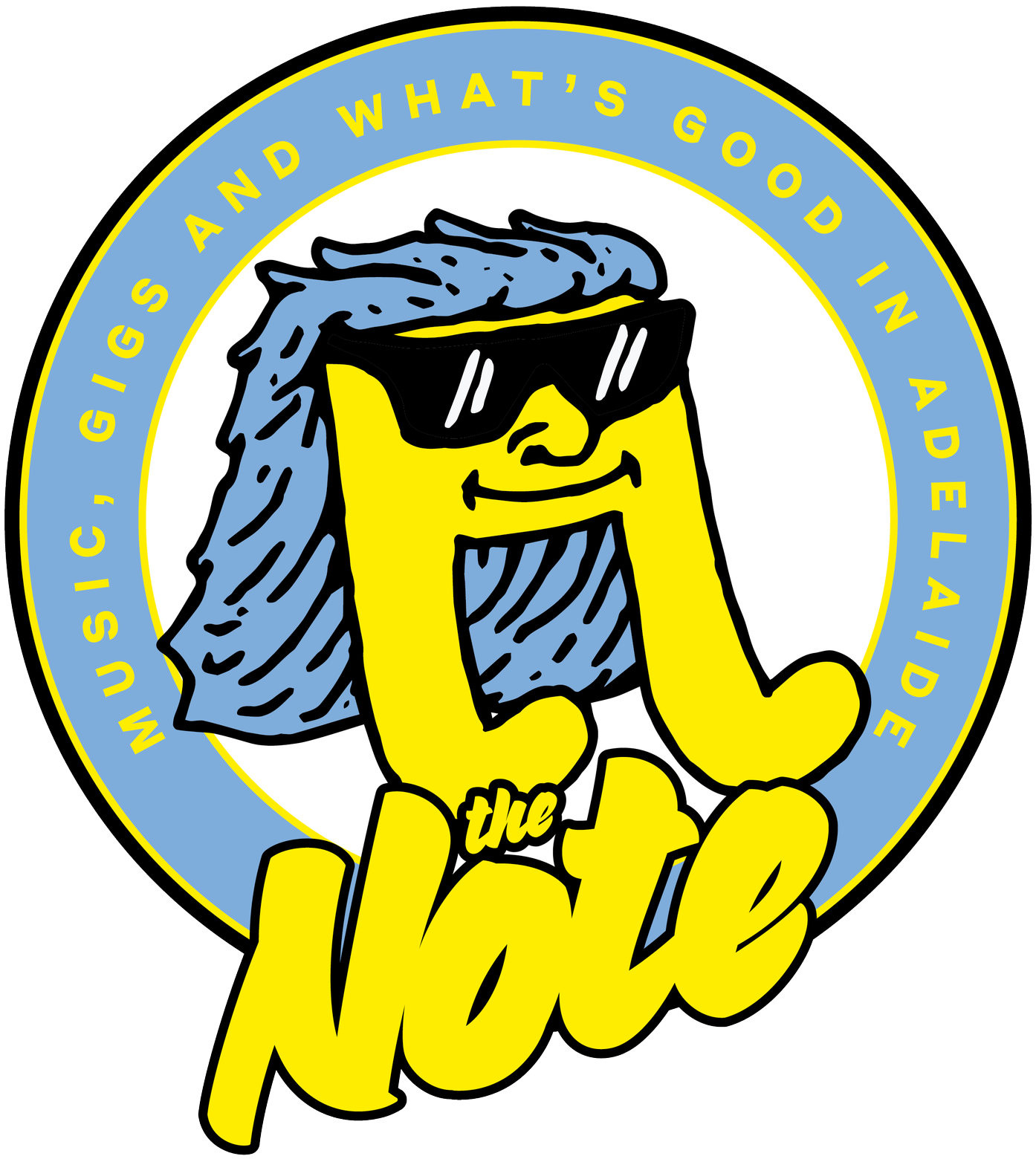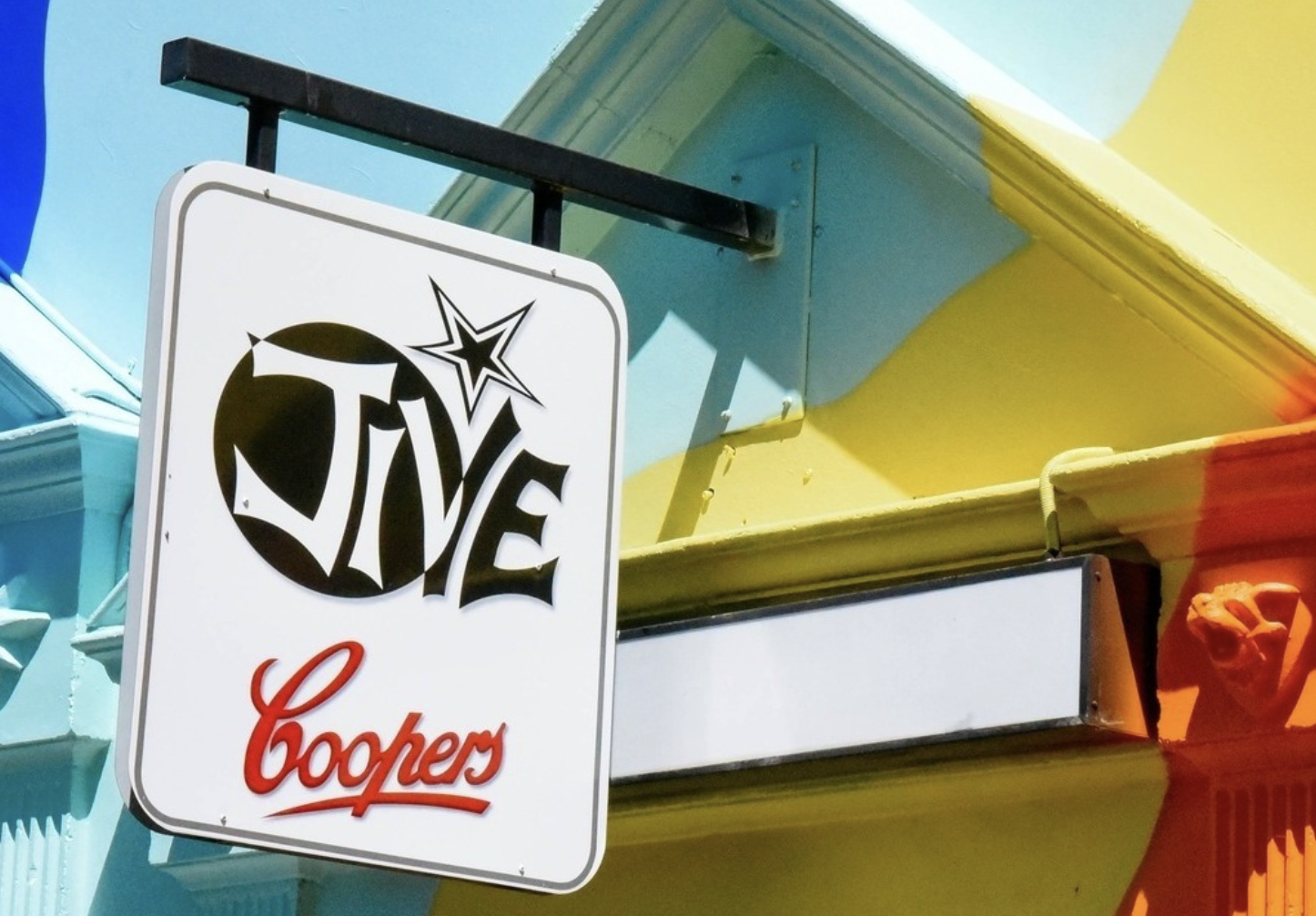Groove Armada’s Endless Rave
Raves, record deals and regenerative farming — Groove Armada’s global journey has been as an unpredictable as their genre-defying discography. Ahead of their set at Vintage Vibes, the dance music mavericks look back at how they became one of the UK’s pioneering electronic acts…
Words by Zara Richards // Photos by David Titlow
Groove Armada are surprisingly punctual. It’s 7:30am in London when Tom Findlay from the pioneering dance act dials into a Zoom call with The Note. The sun’s not up yet, but he assures us he doesn’t mind the early meeting. Minutes later, his other musical half – the 6’8” Barnsley-born trombonist Andy Cato – joins us.
It’s just 10 days before Christmas and the pair are preparing for a busy end of year that’ll see them play half a dozen gigs in the UK before jetting Down Under for an Australian summer of festivals, including a headline appearance at Adelaide’s Vintage Vibes.
“Australia was the one place we got to feel like proper rock ‘n’ roll stars,” says Andy. “I think there’s a commitment to partying and enjoying the moment there, which, combined with our tunes and the way we do our gigs, created some real magic moments. When we sit down and reel off the best nights, there’s a lot of Aussie candidates…”
For a quarter of a century, Groove Armada have been shaping the global electronic scene with their eight-album catalogue of beats that blend genres and generations. You never quite know what sound you’ll hear from the British duo, both now 50. Their biggest songs include radio-ready hits, dirty club anthems and nostalgic chill-out tracks. However, it’s this musical unpredictability that’s seen them headline global stages like Glastonbury, sell millions of albums worldwide, collect three Grammy nominations and become a reference point for an entire generation of electronic artists.
Groove’s sound fuses Tom and Andy’s childhood diet of soul, funk and jazz records with their adolescence spent in fields and forests, listening to the underground noise of England’s emerging rave scene. The pair didn’t meet until after university, but it was through these fuzzy yet formative experiences that they became fast friends and started DJing in London for a club night a mate coined ‘Captain Sensual at the Helm of Groove Armada’ in 1995.
“I played disco in one room and Andy played house in another,” says Tom. “Eventually, parties got smaller and we ended up in the same room. That’s when we had to meld the music.”
Initially, the pair began releasing 12-inch vinyl EPs under the label Tummy Touch to self-promote their nighttime gigs. “And then one EP had ‘At The River’ on it,” recalls Tom. “That became this juggernaut thing that created its own momentum.”
‘At The River’ arrived in 1997 to become an anthem of ’90s chill. But it was all a very happy accident.
The pair were visiting the Lake District, and while buying a feed of beer and waffles, they randomly fished out a Patti Page CD from a village shop discount bin. By chance, Andy had packed his trombone and, back at the cottage where they were staying, he started learning the chords to Page’s ‘Old Cape Cod’. They found a speaker and turned it into a microphone before messing around with a random bass synth they’d packed for the trip.
“We had this mashed-up culture of sunrises and house music and free party experiences – and this tune seemed an appropriate soundtrack. It was totally unintentional. I think the chances of that coming around a second time are pretty small.”
By the turn of the century, Groove Armada introduced a live element to their gigs, inviting touring musicians to perform part of their dance beats. “It led to some absolutely horrific, horrific moments that I feel slightly sick about, even now bringing them to mind,” recalls Andy. “Like standing on stage at what seemed like make or-break gigs – really important shows – and nothing working… Or being about to go on Top of the Pops and watching the computer disappear in a cloud of smoke. I think it actually very nearly scuppered us.”
READ MORE: Foals: Stable Mates
Seminal albums like Goodbye Country (Hello Nightclub) and Lovebox soon followed and by the mid-noughties, Groove Armada proved their music could withstand the boom-bust of England’s rave culture.
“We did our own Lovebox Festival in London,” says Tom. “Just standing in the middle of a field, headlining your own festival with 20,000 people, felt amazing because [we] created something. When so many aspects of your career feel out of control, something that you’ve brought to life like that brings you an enormous amount of pride.”
Then, there was the 2007 Sydney Gig in Centennial Park for V Festival. “It felt like the entire town had come to a standstill,” says Andy. “We did this gig that went down as one of the classic live shows and then, a few hours later, we did what went down as one of the classic DJ sets in a club called Chinese Laundry – which was about as big as the kitchen I’m sitting in. It was brilliant. Both sides of what we love came together: that big, live dance music thing and that joyous pleasure of DJing.”
By 2010, Groove Armada had released their sixth studio album, Black Light, and were back at Glastonbury, this time to headline the John Peel stage. “[It’s] the real stage for electronic artists, it’s the Holy Grail,” says Tom. “[But] Black Light was a controversial record because everyone felt like our sound had changed too much.”
Black Light arrived just before streaming platforms like Spotify changed the way people consume music. Andy says it was still a time when there was a record company standing between artists and an audience. “And whether they supported you or not would literally determine whether anyone would hear [your music]. There was no Plan B. You could slave over this stuff for months and months, and then, at the last minute, decisions would be made that were totally out of your control – which is what happened with Black Light. No one was going to hear it, and, you know, that can obviously drive you quite mad.”
In spite of divided opinion, Groove Armada smashed it at Glastonbury.
“I think one of the reasons the gig was so special is that half the tunes are from Black Light. We were very proud of that album… It was just so satisfying on every level. Not only because it was great music to play…[but] people knew the words and there were tunes bigger than ‘Superstylin’’. It was mega.”
Groove Armada wouldn’t release another studio album for a decade. This break in DJing would see Tom re-train as a cognitive behavioural therapist and work for the NHS while Andy plunged deep into the world of sustainable agriculture, selling his music rights to purchase and run a regenerative farm in the South of France. He’s since founded the climate-friendly farming business Wildfarmed, and last year took on a 20-year lease for a regenerative National Trust plot in Oxfordshire.
For Tom, becoming a cognitive behavioural therapist followed his own experience with a long bout of depression around the same time Black Light was released. “CBT was something that helped me manage,” he says. “Now, we have loads of great conversations about mental health in the music industry. But people didn’t talk about [it] in 2010. I didn’t even know what I was experiencing was depression. Then, obviously, I developed my own interest in [CBT].”
Andy says his agricultural endeavours have helped him find a new appreciation for his former day job. “Going back into the studio for a night in Tom’s basement or DJing has become an enormous release. Daily life has become really quite difficult [but] then you have these moments where you realise there’s this whole world where Tom and I have three decades’ worth of friendship and experiences. All this stuff happens in the silence when we’re together and nothing needs to be said. It’s an incredibly rare thing.”
“It’s about enjoying these experiences that we have left now,” adds Tom. “It’s really nice to have a relationship that’s been through all these different phases and come to a point of just enjoying it again. I think that’s quite rare in a rock ‘n’ roll story.”
As we’re wrapping up the interview, Tom takes a beat, “Can I tell Andy something? I’m just looking at this old inflatable alien [I have]” he says. “And it’s deflated.”
“Oh, really?” Andy replies, letting out a low laugh.
“There’s a little inflatable alien I’ve got in my studio,” explains Tom for the benefit of The Note, “that hasn’t been deflated for 25 years. I’ve just spotted him – he’s deflated and I don’t know if that’s a good sign…”
“Hmmm,” Andy says. “I take it as a positive omen of renewal.”
Catch Groove Armada play at Vintage Vibes this January 27 at Tomich Wines. Tickets are available now.




